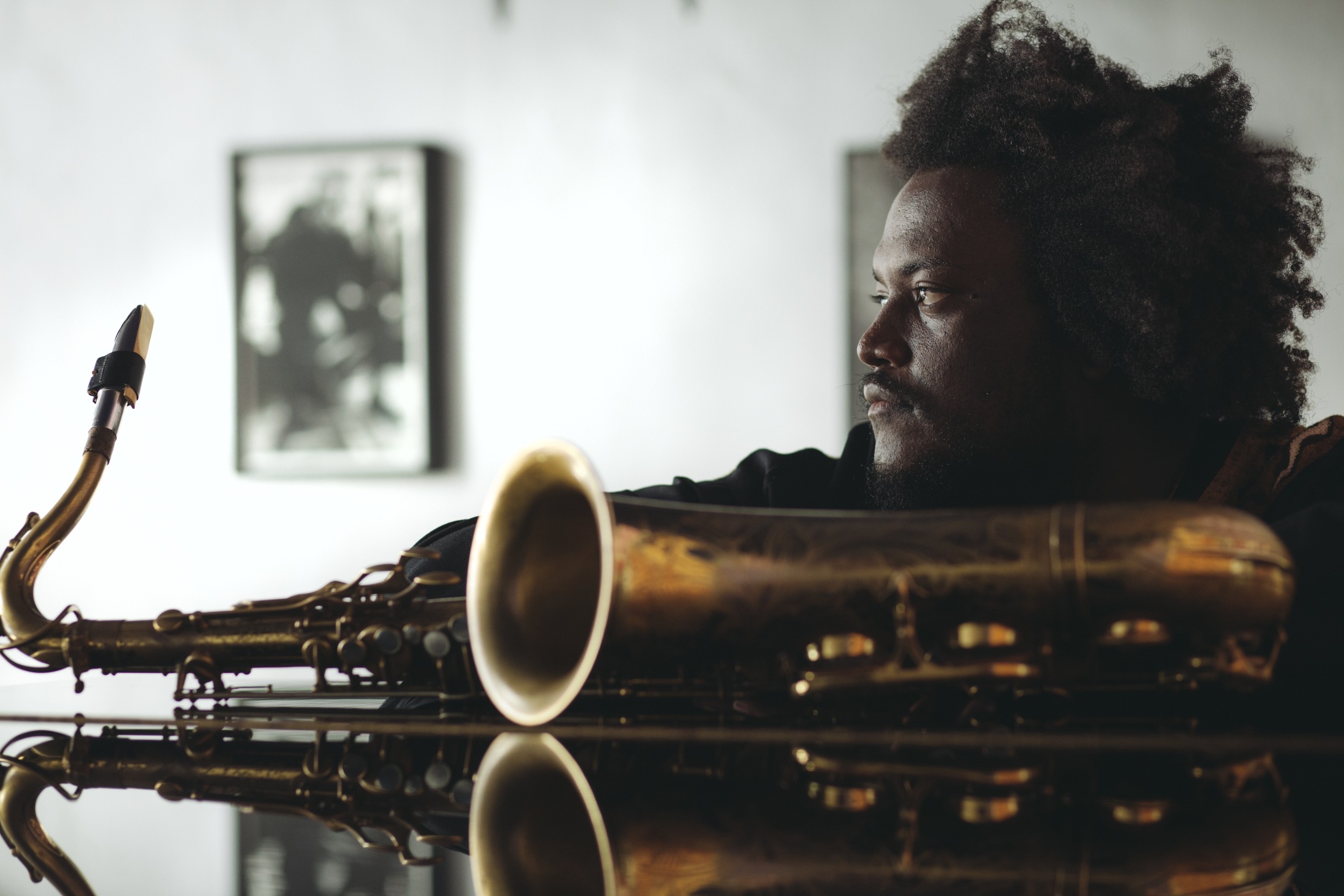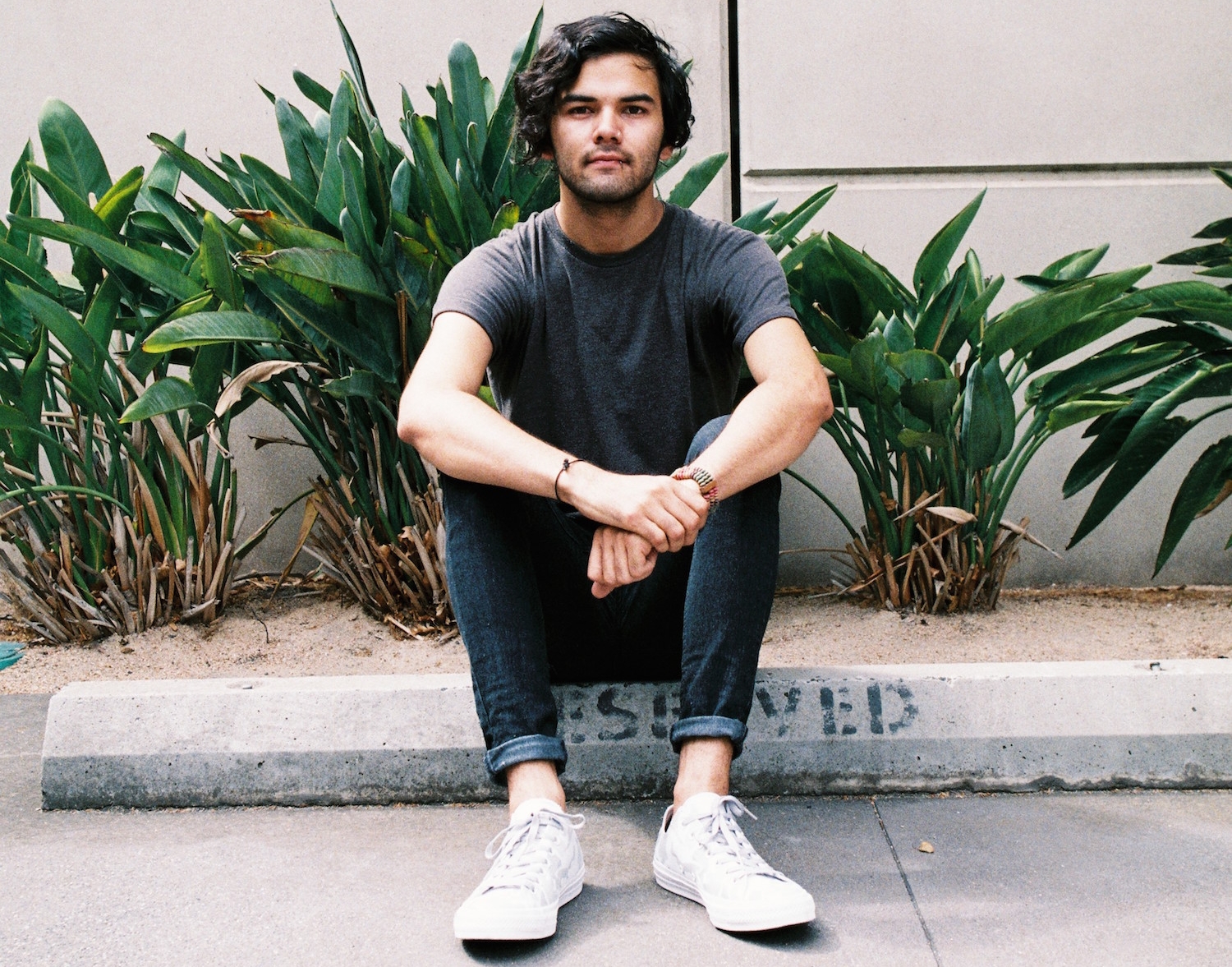“I can remember getting a drum kit when I was three-years-old – I thought I was pretty good, too. That eventually led to learning piano when I was about seven or eight, and by the time I was 13, I had moved onto saxophone. I’m in my 30s now, and it feels like there has never been a time in my life where I wasn’t actively playing music.”
In a considerably short period of time, Washington has risen to prominence as one of the most notable jazz musicians of the modern era, thanks in no small part to the vast array of artists he has collaborated with. These include Kendrick Lamar – who featured Washington on last year’s Grammy-nominated instant classic To Pimp A Butterfly – as well as Thundercat, Lauryn Hill, Flying Lotus and even Snoop Dogg. Washington’s willingness to dabble with a variety of genres has had an impact on the music he makes under his own name. However, he emphasises this trait isn’t exclusive to him.
“I think it’s in the nature of every jazz musician to explore outside of that immediate bubble,” he says. “I mean, you go back and you look at that early bebop stuff, that’s all just show tunes that have been done up in this new style. [John] Coltrane always wanted to see what was going on in all sorts of music. That’s definitely been a part of my life. I mean, before I properly got into jazz as a teenager, I was super into gangsta rap. I had no idea that kind of attitude could be expressed through playing jazz as well.”
“I’ve always been a curious person – it’s inherent to my nature. When I hear music that’s unfamiliar, it doesn’t scare me. It entices me. I study a lot of different approaches to music and I’ve studied a lot of psychology behind them. You have to always be on a quest for something new.”
Washington’s latest album is entitled The Epic, and you’re unlikely to find any other LP from last year with a more fitting name. Not only does the triple album run for a jaw-dropping 173 minutes, it also details the deeply layered concept of a dojo, a guardian of a mythical city and a battle of warriors that bleeds between reality and fantasy. It’s a lot to take in – especially considering it’s an instrumental record. Washington insists, however, that the medium is the message when it comes to his music.
“Music communicates on a deeper level than just words,” he says. “Lyrics can say one thing, but the music can convey [its] own message. Say, for instance, you hear a song in a language you don’t speak. You might not be able to understand a single thing they’re saying, but you can ascertain as to what the song is about due to the nature of its composition. In a lot of ways, it’s a language unto itself. When you’re playing from the heart, it gives listeners a glimpse into who it is you truly are. I don’t necessarily have to try and put a message into the music – the message is already there. It’s an extension of who I am. It’s where I’m at. It’s where I’ve been. It’s where I’m going.”
Washington is set to appear at Bluesfest over the Easter long weekend, the lineup of which features some of the biggest names to have ever appeared at the festival. It’s his first trip to Australia and he’ll also do two headline shows in Sydney and Melbourne. Washington’s excitement for visiting and playing to Australian audiences is palpable – especially when he lays out what people will get out of coming to see him and his band perform.
“We play songs from The Epic and we play some new compositions I’ve been working on. That said, that’s just song titles on a piece of paper – we always play these songs differently. Even I have no idea where we might end up with them. For us it’s about reading the crowd and playing to their energy, seeing what they respond to. Whoever comes to see me and the band play are going to get an experience entirely unique to them.”
BY DAVID JAMES YOUNG

